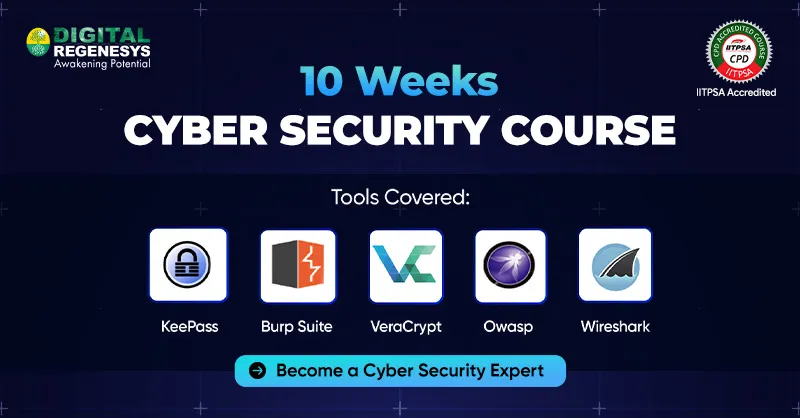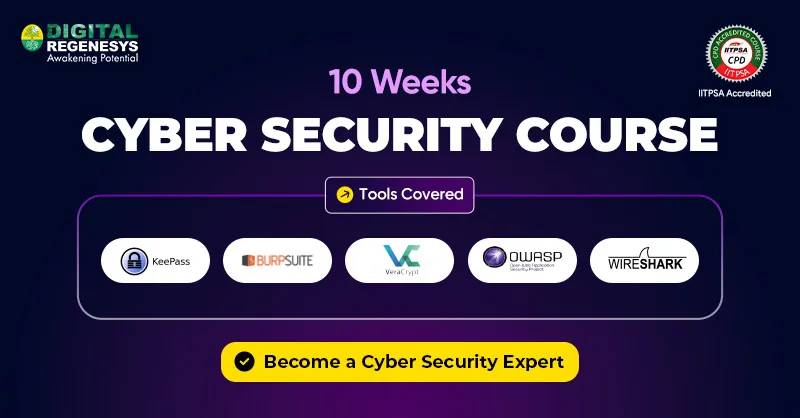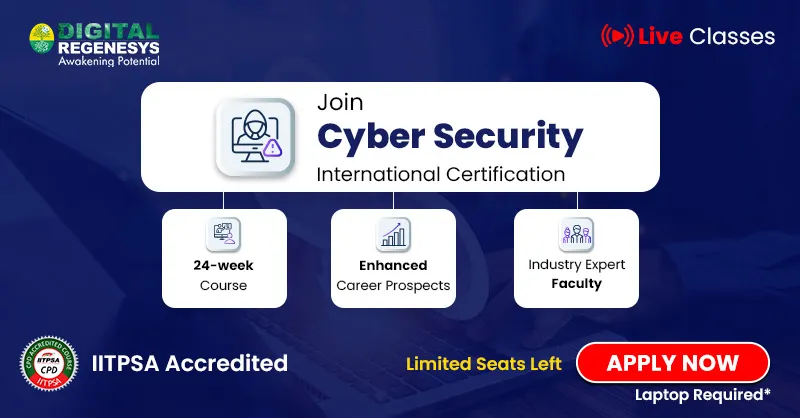How Do Hackers Learn Cybersecurity?

Many people are curious about how do hackers learn Cybersecurity. The world of hacking can look complex, but most hackers start like regular learners who like computers and want to understand how systems work.
They explore, observe, and learn through steady practice. With time, they build skills that help them identify weaknesses in networks, files, and software.
Hackers learn through a structured approach – they do not master skills all at once. They focus on understanding core topics and testing them in real systems. This constant practice builds confidence with tools and cyber methods.
The Motivation Behind Hacking Skills
The reason why hackers learn Cybersecurity is different for each learner. Some choose ethical hacking, and some misuse those skills. Both of these groups depend on strong cyber learning. The skills are similar, but the intention is not.
The idea of ethical hackers vs. malicious hackers training helps clarify the divide. Ethical hackers apply their knowledge to protect systems and promote safety. Malicious hackers use their learning to break systems and cause loss. Both learn methods such as:
- Network scanning
- Web app testing
- Password cracking
- Malware analysis
The direction of their actions defines the result.
Understand Fastest path to become an ethical hacker.

Background That Helps Hackers Learn Faster
People often think hackers need a computer degree. But the truth is different. The hackers background in Cybersecurity varies a lot. Some start learning in school. Some learn from gaming or coding forums. Others learn from blogs and online videos.
Common backgrounds include:
|
Hacker Background |
Skill Advantage |
|
Programming |
It helps hackers understand how computers follow commands and how software functions. They use scripts to test systems, automate tasks, and identify weaknesses. |
|
Networking |
It builds understanding of how devices communicate across networks. Hackers use this knowledge to study traffic flow, ports, and security gaps. |
|
Gaming Mods |
Curiosity drives hackers to explore how systems behave under different conditions. They enjoy finding issues and thinking of ways to fix or break them. |
|
Tech Repair |
It helps hackers track how hardware and software interact. They learn to spot unusual activity, identify system flaws, and predict where failure may occur. |
A strong curiosity pushes hackers to learn. They want to understand how systems are built and why they behave the way they do. That curiosity becomes the base for cyber skills.
Read about Ethical hacking, network and cloud security
How Do They Learn Cybersecurity Step-by-Step?
Understanding how do hackers learn Cybersecurity shows a simple and repeated learning pattern. Hackers follow a cycle that builds both understanding and confidence.
- Learn the basics of computers
- Understand networks and ports
- Study scripting and automation
- Practice in safe labs
- Learn how security flaws happen
- Test systems and document findings
Hackers use online platforms, forums, and cyber labs to practice safely. There are many legal labs available which help them learn without breaking the rules of ethical hacking.
Read about IT fundamentals of Cybersecurity.

Ethical Hackers vs Malicious Hackers: The Real Difference
The main idea behind ethical hackers vs malicious hackers training lies in the purpose. Both learn similar tools and techniques, but one uses the knowledge to protect, while the other uses it to attack. The intention behind the learning decides whether the outcome creates safety or causes harm.
|
Type |
Goal |
Training Focus |
|
Ethical Hacker |
Protect systems |
Defence, safe testing, security audits |
|
Malicious Hacker |
Break systems |
Attacks, data theft, and exploitation |
Ethical hackers support companies by detecting and fixing gaps. Malicious hackers use that same knowledge to steal and cause damage. The skill is the same, but the intention changes the impact.
Read about attacks, concepts and techniques in Cybersecurity
How Hackers Use Cybersecurity Knowledge?
Once hackers build strong skills, they start applying them. This is where how hackers use Cybersecurity knowledge becomes important. Ethical hackers use their knowledge to create safety. Malicious hackers use it to gain access.
Examples:
- Ethical use
- Testing websites for weak points
- Fixing password and network leaks
- Helping companies secure servers
- Reporting bugs legally
- Malicious use
- Installing malware
- Cracking accounts
- Stealing business or personal data
- Selling leaked information online
The action depends on values, not on skill.
Why Digital Regenesys Works for Practical Cyber Careers?
Modern cyber careers demand more than theory. Employers want professionals who can detect threats, solve incidents, and secure real systems. The Cybersecurity Certification Course by Digital Regenesys helps learners build these practical skills step by step.
The platform follows a style that focuses on clarity, hands-on work, and guided learning.
Students learn through short lessons, live support, and real problem-solving tasks. They explore how networks break, how attacks occur, and how to fix weaknesses in a safe and legal environment. This builds sharp thinking and confidence.
Digital Regenesys also helps students learn job-ready cyber roles, such as:
- Security Operations Centre analyst
- Cybersecurity consultant
- Network security specialist
- Penetration testing support
- System monitoring and defence
Each module ends with exercises that match real workplace tasks. Learners gain experience with tools, logs, reports, and scanners.
They begin to think like cyber professionals, not just students. This makes the shift from training to employment smooth and comfortable.

Conclusion
Learning how do hackers learn Cybersecurity shows that curiosity and practice shape strong cyber minds. Hackers grow through system testing, real labs, and problem-solving.
Some choose ethics and protection, while others choose to attack and misuse. The skill is powerful, and the direction matters. Anyone can learn Cybersecurity legally and support the digital world when guided through the right path.
Join Digital Regenesys to unlock your potential to become an ethical hacker in Cybersecurity. Learn about different domains and explore various possibilities in the field of Cybersecurity.
Last Updated: 5 February 2026